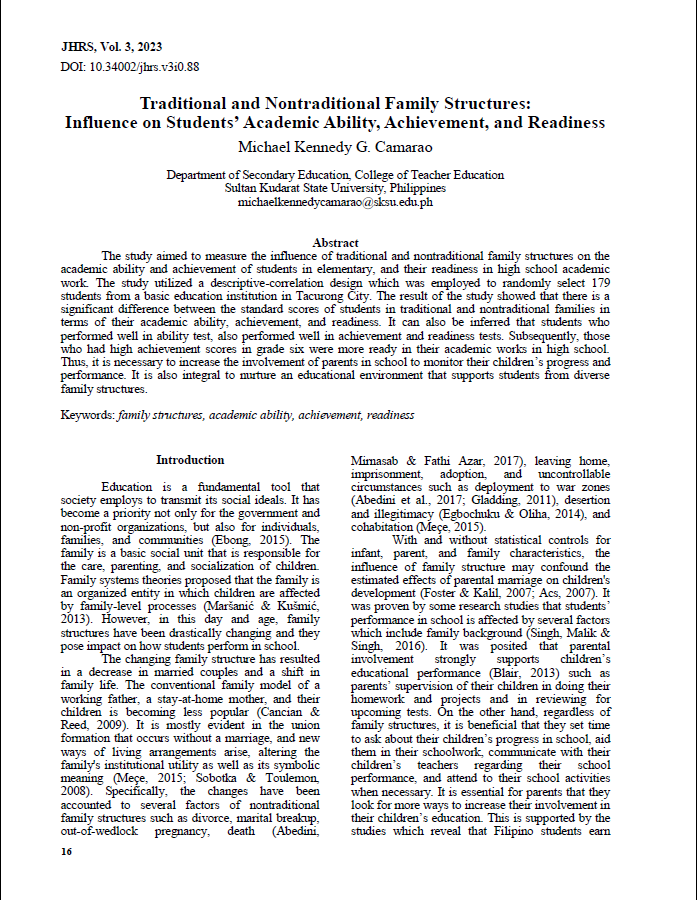Traditional and Nontraditional Family Structures: Influence on Students’ Academic Ability, Achievement, and Readiness
Abstract
The study aimed to measure the influence of traditional and nontraditional family structures on the academic ability and achievement of students in elementary, and their readiness in high school academic work. The study utilized a descriptive-correlation design which was employed to randomly select 179 students from a basic education institution in Tacurong City. The result of the study showed that there is a significant difference between the standard scores of students in traditional and nontraditional families in terms of their academic ability, achievement, and readiness. It can also be inferred that students who performed well in ability test, also performed well in achievement and readiness tests. Subsequently, those who had high achievement scores in grade six were more ready in their academic works in high school. Thus, it is necessary to increase the involvement of parents in school to monitor their children’s progress and performance. It is also integral to nurture an educational environment that supports students from diverse family structures.

